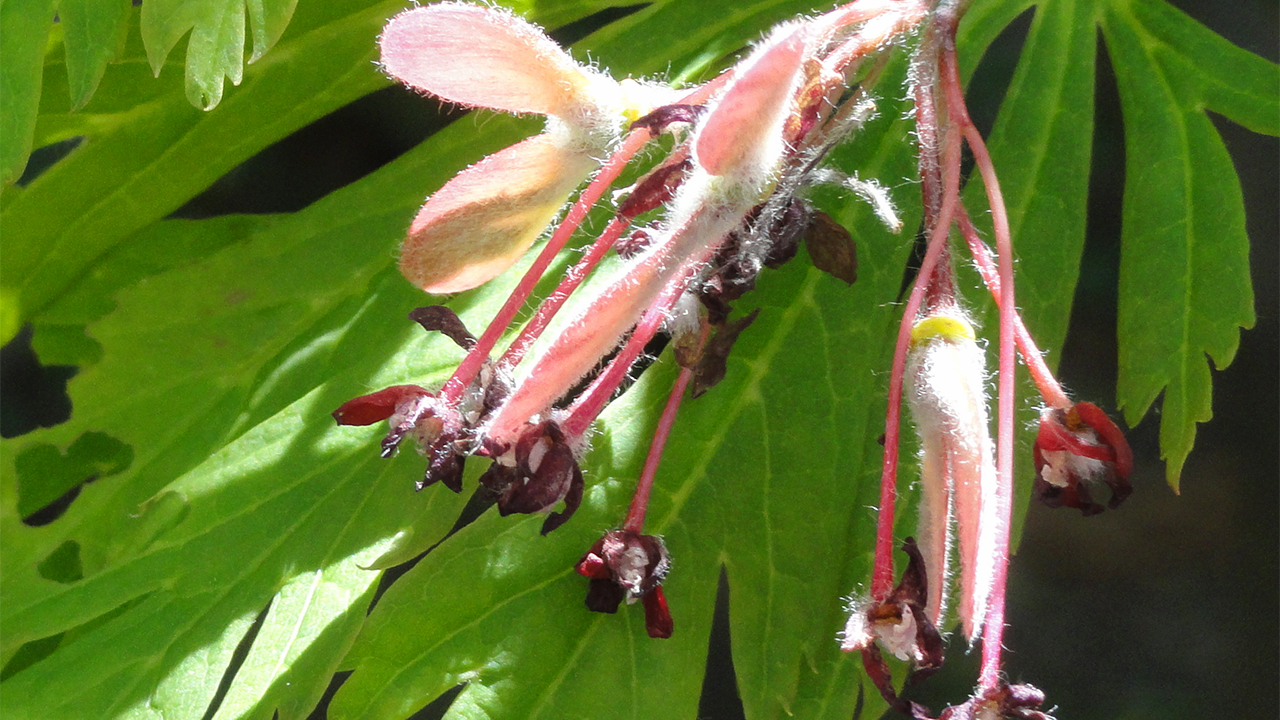A samara is a type of dry fruit, typically with one seed, characterized by a flattened, wing-like structure made of paper-thin tissue that develops from the ovary wall.
These unique fruits are commonly found on ash, elm, sycamore, and maple trees.
Known by various names such as “key,” “whirlybird,” “helicopter,” “whirligig,” or “spinning Jenny,” samaras are easily recognized for their distinctive shape, which allows them to spin like a helicopter’s blades when they fall.
This spinning motion is not just for show; it plays a crucial role in the plant’s reproduction by enabling the wind to carry the seeds farther away from the parent tree, thus promoting wider seed dispersal.
The term “samara” originates from Latin, meaning “seed of the elm.”
This botanical term highlights the long association of this fruit type with elm trees, though it is now widely applied to several other tree species as well.
In the fall, when samaras form and detach from the trees, they create a natural spectacle.
Children often find joy in tossing them into the air and watching them twirl gracefully to the ground, mimicking the motion of miniature helicopters.
Discover Beautiful Flowers, Expert Gardening Tips & Interesting Plant Science!
By submitting this form, you are consenting to receive marketing emails from: . You can revoke your consent to receive emails at any time by using the SafeUnsubscribe® link, found at the bottom of every email. Emails are serviced by Constant Contact

About The Author
John Bagnasco has been in the gardening industry for over 50 years, starting with a horticulture degree from Michigan State University and following a stint at Frank’s Nursery and Crafts in Detroit.
After publishing his first book “Plants for the Home Vol. I” in 1976, he moved to California to become regional manager and buyer for the Nurseryland division of Sunbelt Nursery Group.
He then became the head buyer for Armstrong Garden Centers based in Glendora, California. John had a part-time affiliation with Creative Promotions for ten years before joining them full-time in October 2000 as a senior editor and radio personality for Garden Compass.
John has also taught horticulture classes at Palomar College and San Diego State University.
He is the host of the DVD “The Essential Guide to Roses,” which also features Bryan Main and Bruce and Sharon Asakawa.
His most recent book is “Planting Designs for Cacti and Succulents”.
Currently, John is a co-host on “Garden America,” an interactive live gardening show that additionally provides podcasts of the broadcasts accessible on all major platforms.
You can contact John here.

